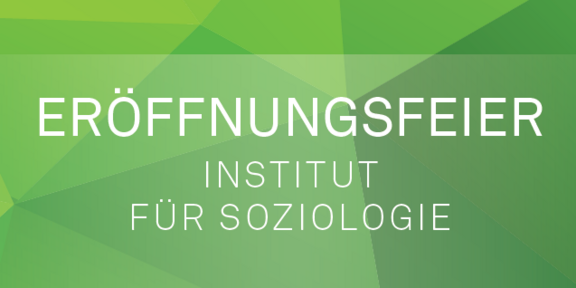Opening ceremony of the Institute of Sociology at TU Dortmund University

At the celebration, there will be sociological and policy-related discussions about what it means to establish an institute for sociology in these times. What are the key challenges? What hurdles do we have to overcome? What opportunities are there?
After the welcome address, Prof. Dr. Tilman Reitz (University of Jena) will give a presentation on the topic “Endangered knowledge. Sociology in a higher education system threatened from within and without.” The topic will then be explored in greater depth in a panel discussion between the speaker and Prof. Dr. Nicole Burzan (TU Dortmund), Prof. Dr. Diana Lengersdorf (University of Bielefeld), and Dr. Marcel Sebastian (TU Dortmund). The event will conclude with a festive reception.
Please register by email.
The invitation to the opening ceremony can be found here (in german).
More information about the input
Prof. Dr. Tilman Reitz, University of Jena
Endangered knowledge. Sociology in a higher education system threatened from within and without
Since it has become apparent in the supposed home of modern science and democracy how science and democracy can be politically dismantled, nervousness has also been growing in other Western countries. What are the chances of creating decidedly critical knowledge, building on existing findings, or even maintaining basic standards of objectivity and factual accuracy when authoritarian forces increasingly determine the political framework? In this situation, sociological analysis and intervention can help in various ways. First, we can reflect on whether the threats come only from outside or whether trends within the academic system itself are also undermining science – from the precarious situation of young academics to the pull of project competitions and publishing for the sake of measured prestige. Second, we can discuss in analyses of political discourse and mobilization processes the extent to which critical science has unwittingly provided ammunition to right-wing forces who see the people as being patronized by self-righteous elites. Finally, sociology as a discipline should perhaps also prepare itself institutionally for times when the freedom of critical teaching and research must be defended against authoritarian attacks. The lecture will develop concrete proposals in all three areas.


